Social cohesion and democratic reslience in an uncertain world
Program may be subject to change
9.30am
Welcome to Country
Uncle Harry Allie
9.45am
Opening Remarks
Distinguished Professor George Williams AO – Vice-Chancellor, Western Sydney University
10.00am
Why this matters for us now?
Discussion unpacking the many factors that contribute to social cohesion and democratic resilience in contemporary society.
Associate Professor Susan Moylan-Coombes – Transdisciplinary School, UTS and CEO Gaimaragal Group
Anthea Hancocks – CEO, Scanlon Foundation
Professor Kevin Dunn – Provost, Western Sydney University
Yamamah Agha – General Manager, Newcomers, Settlement and Integration, Settlement Services International
Moderated by Pia van de Zandt, Executive Director, Delivery, Social and Community, NSW Premier’s Department
Key Themes
- The protective factors for social cohesion and democratic resilience that must be prioritized by organisations and leaders.
- How the current context has fuelled urgency in this space, and what is at risk if we don’t act now.
- What practitioners and decision makers can do in their day to day roles to strengthen social cohesion and democratic resilience at scale.
10.45am
Keynote Addresses
The Hon. Tony Burke MP – Minister for Home Affairs, Minister for the Arts, Minister for Cyber Security, Minister for Immigration and Multicultural Affairs
Peter Khalil MP – Special Envoy for Social Cohesion
11.15am
Morning Tea and Networking
11.45am
Our politics is sick, who needs more politics! – Keynote Address and Q&A
Stan Grant
12.30pm
Beset on All Sides?
Discussion exploring the factors placing pressure on social cohesion and democratic resilience: the impact of COVID, as well as economic and climate factors.
Marc Ablong – Senior Visiting Fellow, Australian Strategic Policy Institute
Jodie Wrigley – Head of Health and Social Change, Senate SHJ
Professor Kate Reynolds – Australian National University
Dr Cassandra Goldie AO – Chief Executive Officer, ACOSS
Moderated by Dr Jeni Whalan, First Assistant Secretary, Office of Community Cohesion, Department of Home Affairs.
Key themes
- How ‘kitchen table’ issues are impacting social cohesion in real and practical ways within communities.
- Examples that demonstrate the importance of both localised and systemic responses to pressures on social cohesion and democratic resilience.
- Tangible ways that practitioners and decision makers can increase social cohesion in the context of these pressures within their community.
1.00pm
Lunch and Networking
2.00pm
Concurrent Workshops
Workshops with multiple speakers, facilitated to engage audience and generate data across a range of different topics and interest areas.
Deep listening with First Nations communities and its role in social cohesion practices
First Nations led session regarding role of deep listening in participatory and inclusive communities.
Anny Druett – Founder, Open the Space
Fiona Towney – Director of Indigenous Futures, Western Sydney University
Matt Poll – Manager Indigenous Programs, Australian National Maritime Museum
Moderated by Matilda Harry, Western Sydney University
Key themes
- The importance of deep listening, and frameworks that can be practically utilised to inform participatory and inclusive processes.
- Tangible ways that leaders and practitioners should adapt their approaches to respectfully engage with First Nations communities.
- Practical examples of engagement with First Nations communities, and how these can be utilised to facilitate meaningful conversations.
Social cohesion in the context of diverse beliefs
Session exploring the impacts of religion and belief diversity on social cohesion, and the role that religious leaders play in championing community cohesion.
Dr Kathleen Openshaw – Western Sydney University
Annette Schnieder – CEO, Together For Humanity
Ahmet Polat – Executive Director, Affinity Intercultural Foundation
Darren Bark – Co-Chair, Faith NSW
Moderated by Dr Malcolm Haddon, Multicultural NSW
Key themes
- The influence of religious leaders in shaping sentiment and social cohesion within their communities.
- The tensions that exist within the context of belief diversity in multicultural Australia, and practical ways in which these can be overcome.
- How to engage and collaborate appropriately with religious leaders to achieve shared outcomes relating to social cohesion.
Finding new spaces at work for building social cohesion and civic engagement
Session featuring speakers from industry that explores the role that corporate institutions play in creating social cohesion and key enablers for successful community corporate partnerships.
Associate Professor Mel Edwards – Research and Innovation Director, Centre for Social Impact
Liz Yeo – Chief of Alliances, Paul Ramsay Foundation
Cliff Eberly – Program Director – Resilient People and Places, Centre for Policy Development
Moderated by Mia Zahra, Executive Manager, Anti-Discrimination NSW
Key themes
- The nuances of working with ‘non-traditional’ partners to create and safeguard social cohesion.
- The common mistakes made by community organisations and leaders when developing partnerships with corporate institutions.
- Practical ways to approach and engage partners across the community corporate divide.
Creating and catalysing assets within the community
Session featuring experts reflecting on community assets based approaches, and how to utilse community driven approaches to drive social cohesion.
Sarah Reilly – Managing Director, CRED Consulting
Jen Guice – Director, CRED Consulting
3.00pm
Afternoon Tea and Networking
3.30pm
Elevating Young Voices
Presentation and discussion with young people involved in Youth Social Cohesion Summit satellite event, regarding their roadmap for social cohesion and what they need to audience to do differently
Andrew Johnson – Interim Chief Executive Officer, Youth Action
Julie Charlton – Youth Advocate
4.00pm
Democracy: a critical national asset
Session unpacking issues of public trust and the role of communities in safeguarding and strengthening Australian democracy.
Dr Jeni Whalan – FAS Office of Community Cohesion, Department of Home Affairs
Associate Professor Simon Angus – Department of Economics and SoDa Laboratories, Monash University
Professor Rod Sims AO – Crawford School of Public Policy, Australian National University
Moderated by Sneha Chatterjee, A/First Assistant Secretary, Citizenship and Multicultural Affairs Division, Department of Home Affairs
Key themes
- Why democratic resilience is the domain of all stakeholders, including frontline workers, academics and policy-makers.
- The traditional strengths of Australia which safeguard democratic resilience, and how these might be better leveraged.
- Practical ways in which Australians can strengthen democratic resilience in their work and everyday lives.
4.45pm
